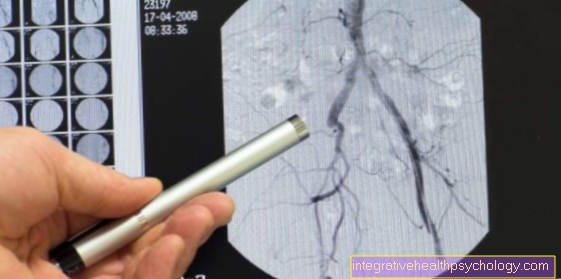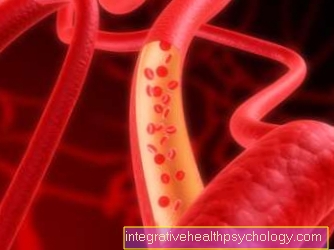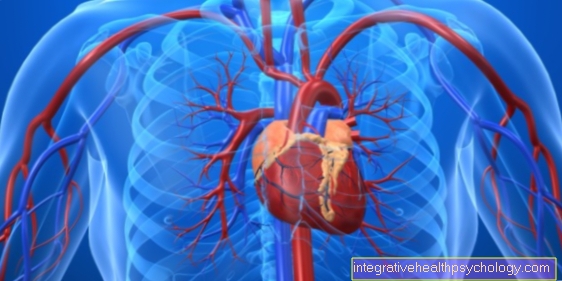Causes of difficulty swallowing
introduction

Difficulty swallowing - too Dysphagia called - can occur in the context of many different diseases, so that they can have numerous causes. These are not always organic in nature, but can also be psychological or psychosomatic. The rule here is that the younger the patient with swallowing difficulties and the more variable the symptoms, the more likely it is that a psychological / psychosomatic genesis can be assumed.
Nevertheless, every occurrence of swallowing problems must be carefully clarified in order to rule out all possible organic causes and ultimately to choose the right therapy. Difficulty swallowing often does not occur alone, but is accompanied by other complaints such as sore throat, throat, chest or stomach pain, heartburn, hoarseness and coughing, choking up of food particles or mucus (regurgitation), bad breath, speech disorders, B symptoms (fever, Night sweats, weight loss) or shortness of breath.
Likewise, swallowing difficulties do not necessarily have to be painful, but they can just as easily occur without any pain in the form of difficult food and fluid passage through the throat and esophagus. Depending on the location of the difficulty swallowing, these are divided into oropharyngeal - relating to the pharynx - and esophageal - relating to the esophagus.
Physical causes
Congenital causes
- Aganglionosis: a congenital lack of nerve cells in the wall of the esophagus (Aganglionosis), so that this is spastic and permanently contracted and makes passage of food difficult.
- Esophageal atresia: An embryonic malposition in which the esophagus has no connection to the stomach or is severely narrowed.
Read more about esophageal atresia
Organic causes
- Inflammation in the pharynx: inflammation of the tonsils or the pharynx wall as a result of bacterial or viral infections, which, due to severe pain and swollen tissue, lead to swallowing and breathing difficulties (severely swollen tonsils can even lead to difficulty breathing). Infection complications such as abscesses (accumulations of pus) in the space behind the throat (Retropharyngeal abscess) or in the tissue that surrounds the tonsils (Peritonsillar abscess), can cause difficulty swallowing.
Read more on the topic: Tonsillitis and swelling on the side of the neck - Diseases of the esophagus: The esophagus is significantly involved in the act of swallowing and the transport of food to the stomach and is one of the common causes of dysphagia. On the one hand, a viral or bacterial inflammation of the esophagus can cause swallowing difficulties, but also movement disorders in the esophageal muscles, which lead to permanent contractions and thus to an obstacle to food passage (Esophageal spasm). Also a narrow esophagus due to other circumstances (Esophageal stenosis by z. B. caused by a tumor, or after chemical burns with alkalis / acids) or an esophageal passage stuck together by scar tissue (Esophageal stricture z. (E.g. after inflammation), changes in swallowing sensation can be a symptom. In addition, protuberances in the esophageal wall (Esophageal diverticulum) or widened vessels in the venous plexus of the esophagus (esophageal varices, e.g. in the context of advanced liver cirrhosis) cause the same symptoms. In rare cases - but indispensable in differential diagnosis - malignant tumors of the esophagus (Esophageal carcinoma), which is why the symptoms should always be carefully clarified.
- Thyroid disorders: can definitely lead to swallowing difficulties. Due to their close anatomical relationship to the trachea and esophagus, inflammatory diseases (e.g. thyroiditis) or thyroid diseases that cause an enlargement of the organ (goiter) can lead to swallowing difficulties in the area of the esophagus due to an inflammatory stimulus or a mass.
Read more on the topic: Thyroid disorders - Systemic diseases: Difficulty swallowing can also occur in the so-called CREST syndrome, an autoimmune disease with changes in the internal organs and thickening of the skin, or in the context of Plummer-Vinson syndrome, in which a diet-related iron deficiency leads to a complex of various symptoms.
- Diseases of the central and peripheral nervous system: These include, among others Parkinson's disease, the condition during or after a stroke, multiple sclerosis, myasthenia gravis (faulty signal transmission from nerve to muscle) and a disturbance in the conduction of excitation of the autonomic nervous system, which is responsible for, among other things, movement in the muscles of the digestive tract responsible is.
You may also be interested in this topic: Symptoms of laryngitis
Traumatic causes
One of the “traumatic causes” of difficulty swallowing is the Hyoid bone fracture by e.g. Sports accidents (especially in martial arts) are expected. The hyoid bone is essential for the swallowing act to run smoothly and instability can lead to problems in the swallowing mechanism. But that too accidental swallowing of foreign bodies (e.g. bones, bones, dentures, in the case of children also toy parts, etc.), which may block the esophagus and thus the passage, can lead to swallowing difficulties.
Mental / psychosomatic causes
Mental causes
One of the psychological causes of swallowing disorders is the so-called Phagophobia, which is a characteristic Fear of swallowing which is often triggered by previous, violent swallowing and favored by other existing anxiety disorders. As a result of this anxiety state, avoiding swallowing solid or liquid food leads to disturbances in eating behavior and / or even weight loss.
Psychosomatic causes
This is one of the common psychosomatic causes Globe syndrome, which is one of the somatoform disorders and through the Feeling of having a lump in my throat all the timeobstructing swallowing and breathing. Often these patients also stand out due to a constant compulsion to have to clear their throat. This disorder is not based on an organic disease, so that the search for a physical cause is usually unsuccessful.





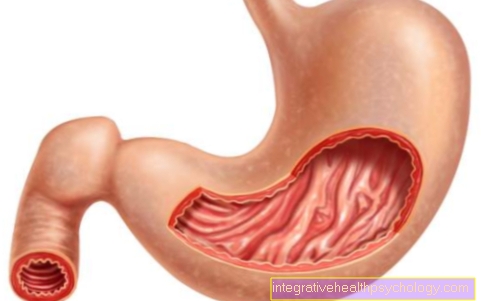

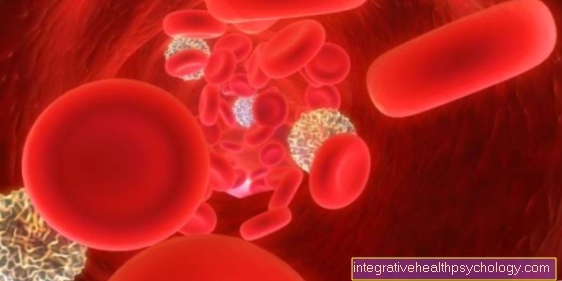




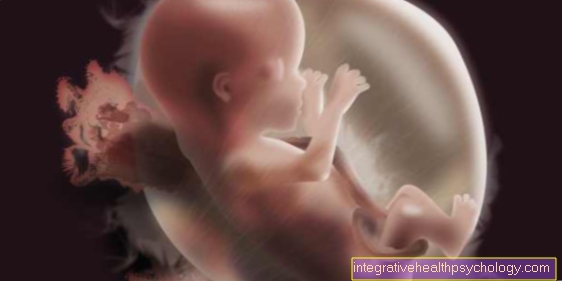


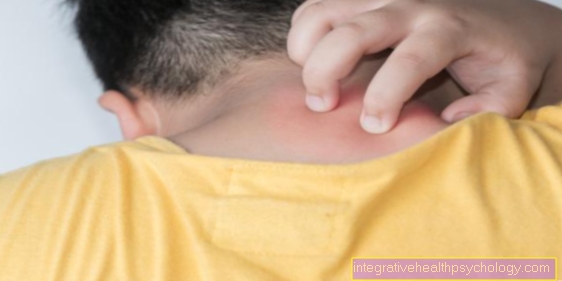


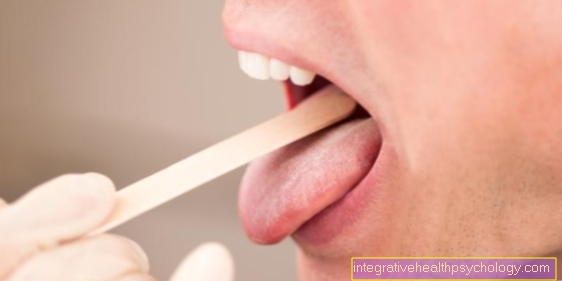


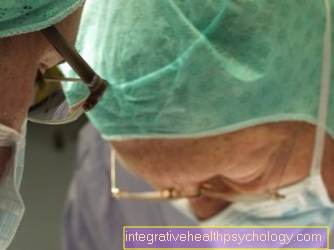



.jpg)
